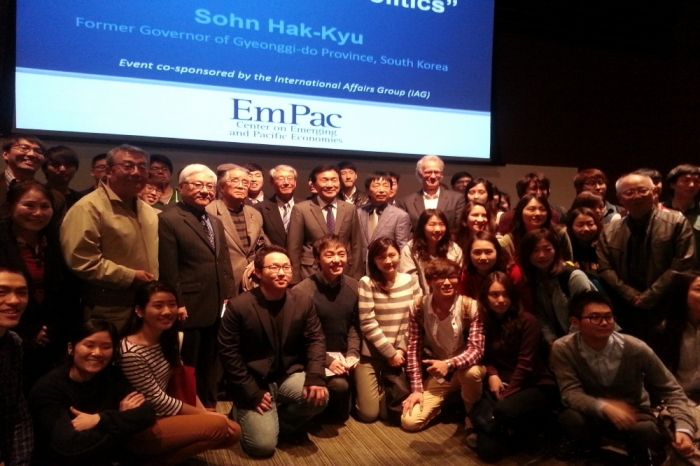The Changing Regional Order in East Asia and the Korea-U.S. Relations
Sohn Hak Kyu
January 22, 2014
UCSD
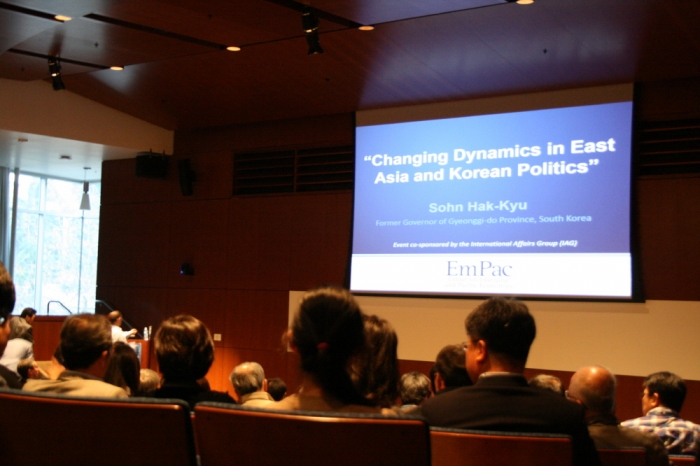
It is a great honour for me to give a lecture before the students and faculty members of the UC San Diego today. I would like to express my gratitude to Professor Gordon Hanson, Director of the Center on Emerging and Pacific Economies, and Professor Peter Cowhey, Dean of the School of International Relations and Pacific Studies, for inviting me to this prestigious programme. I am also grateful for Professor Stephan Haggard and Professor You Jong Song and other staff of the IR/PS and the Center for their support for my visit.
Under the title of my lecture, 'Changing Dynamics in East Asia and Korean Politics,' I will focus on the Korea-US relations in the changing regional order in East Asia.
We are living in an 'era of grand transition.' The global order has undergone a great change from two perspectives. One is the massive global disruption caused by the economic and political changes: constant threat by terrors and regional disputes, and the failure of the capitalist economy surrounding financial crises. The other is the global power transition taking place in the course of the rise of China in particular.
These disruption and power transitions bring about the era of multi-polar or multi-partner system, which shapes a new global order. The new global order is characterised by multi-partnership order in which the allocation of power in the aspects of economy, banking, society and culture is diversified whereas the hegemonic power of the US in political and military aspects remains as before.
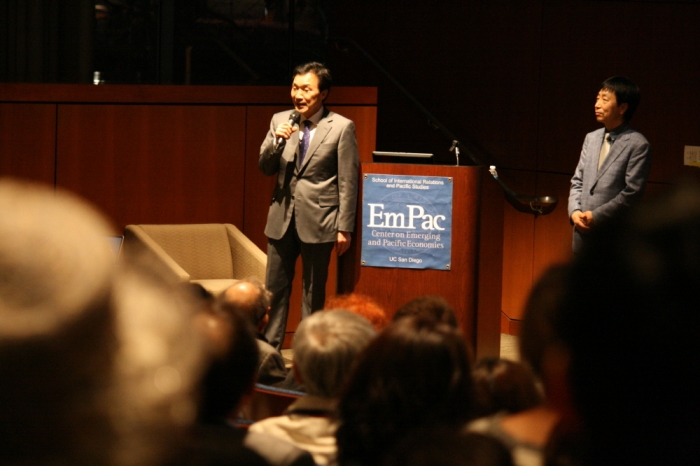
The rise of China is a crucial aspect of the global transition. It has moved the pillar of the world economy from Trans-Atlantic to Trans-Pacific. It may bring about the era of Asia in concurrence of the emergence of the G2 of the US and China. Some people even envisage the emergence of the new civilisation in East Asia.
Along with the grand transition of the Global order, however, the security order in Northeast Asia, established after the WWII has basically remained intact even after the end of the Cold War. This contrasts sharply with the parallel end of the global and regional Cold War in Europe. Today's East Asian regional security order is characterized by a lingering rivalry between the maritime forces (the United States, Japan, and Korea) on the one hand and continental forces (China, Russia, and North Korea) on the other. Among the continental forces, China has emerged as the major power, replacing the former Soviet Union. Among the maritime forces, Japan has maintained its status as the United States' closest regional ally.
Against this backdrop, the Korean peninsula, as a frontline between these two forces, has witnessed an ever-growing gap between South and North Korea in terms of social, economic, and political development. Few now question the inevitability of South Korea's leading role in shaping the future of the Korean peninsula.
North Korea has been preoccupied with missile and nuclear development, based on the flawed notion that they can somehow make up for its economic backwardness and inferior conventional military capability. The alarming progress made in its missile and nuclear capabilities has been the primary cause of instability and arms race in Northeast Asia.
Under these circumstances, China and the United States are building a so-called "new type of great power relations," aiming to maintain and manage the status quo. At the same time, the United States has tried to address fiscal pressures to curtail defense spending by turning to allied burden sharing with Japan and Korea. While the rise of China in the last decade has made Japan feel insecure and apprehensive, it has not been able to address those concerns effectively.
But the rise of China, the formation of a "new type of great power relations" between China and the United States, and the American demand for increased defense burden sharing are emboldening Japan's claim to the right to becoming a "normal state." While there are various opinions within Japan, they do seem to converge around the need to relieve itself from the restrictions imposed on the use of military power in the peace constitution and seek a stronger military role.
By visiting the Yasukuni Shrine that commemorates "Class A" war criminals, the Japanese Prime Minister acted in denial of Japanese war atrocities and rejected the postwar order. The more significant underlying implication is that Japan will not tolerate a regional order led by the United States and China. The Abe cabinet is expected to do everything it can to exercise military self-defense and revise the constitution.
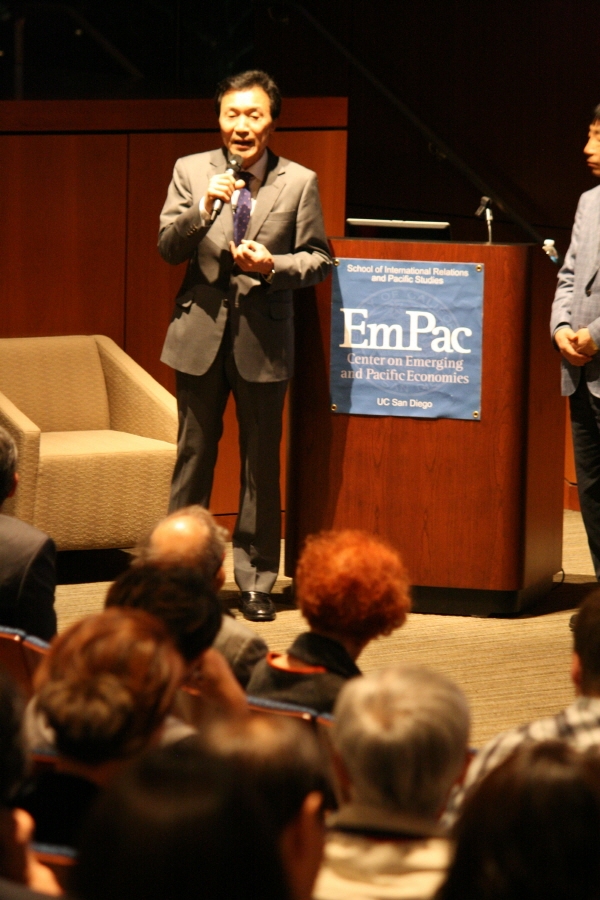
Against this backdrop, important changes are taking place in the East Asian regional order. The rise of China and the resurgence of Sinocentrism, the instability of the American policy of "rebalance" towards Asia, the strengthening of Japanese military power, and North Korea's nuclear capability and regime instability are central to the present changes in the regional security environment. These changes could evolve in a constructive direction. It is also possible, however, that the confluence of Sino-American tensions, Sino-Japanese clashes, and disorder on the Korean peninsula could further complicate the situation.
For the last sixty years, the ROK-U.S. alliance has played a decisive role in promoting peace and stability in Northeast Asia. It is now time for the alliance to go beyond the present role of maintaining the status quo and assume the additional responsibility of establishing a future order for managing change and achieving peace and common prosperity.
First, the ROK-U.S alliance must facilitate cooperation rather than provoke confrontation. The South Korean people do not wish to see the United States and China engaged in conflict on or around the Korean peninsula. South Korea and the United States have established a military alliance, which is the closest form of inter-state relations. The "strategic partnership" between South Korea and China is, in real terms, merely declaratory in military aspect. This concept is rather more of significance in economic aspect, for China has become the largest economic partner from the Korean perspectives.
The South Korean people do not wish to be forced to take sides between the United States and China in this context. In this respect, Vice President Biden's comment, "It's never been a good bet to bet against America" may drive South Koreans into an uncomfortable position. Koreans would want to see the cooperative relations between two countries rather than confrontation and conflict. In the same vein, South Korea wants to see the Trans-Pacific Partnership (TPP) promote regional economic cooperation rather than set up barriers to free trade and investment. Therefore, from the South Korean perspective, a better economic relationship between US and China such as FTA will be desirable if China's inclusion in the TPP is unrealistic at present situation.
Second, South Korea and the United States must cooperate to ensure that Japan's pursuit of a "normal state" does not precipitate an arms race in the Asia Pacific region. Japan refuses to accept responsibility for war crimes and has the perception that its only mistake was losing the war. This is not merely a problem of historical interpretation; it portends a dangerous future because Japanese actions could catalyze Chinese nationalism and militarism to come together. These clashing views between China and Japan could potentially heighten tensions in the region. South Korea, Japan, and the United States must cooperate on a wide range of issues based on the shared values of democracy and market economy.
But such trilateral cooperation cannot progress in earnest until Japan disassociates itself from its past wrong-doings. How the United States will address this problem is becoming an important question for its diplomacy in the region. In this respect, US's official position on the Japanese Prime Minister's visit to Yasukuni Shrine expressed by the US Embassy in Tokyo just after the visit was quite appropriate. In the same vein, the legislation of the budget law that includes the clause on the 'comfort woman' was also conceived positive in the role of the US with regard to peace and cooperation in the region.
Third, South Korea and the United States must attempt a new approach to deal with the North Korean nuclear problem, a key challenge to the global nonproliferation regime and regional stability in Northeast Asia. The majority of the South Korean people feel that the United States is more focused on preventing the proliferation of North Korea's nuclear danger rather than achieve denuclearization. This policy cannot have any effect on changing the current situation as long as South Korea remains North Korea's nuclear hostage. The United States must understand that the South Korean people will not tolerate such danger indefinitely.
The United States may at some point have to think about the basic structure of the security regime in the Korean peninsula. Peace regime is constructed on the basis of either coercive and military measure or mutual recognition and coexistence. South and North Korea together entered into the UN in 1991. South Korea established diplomatic relations with China and USSR in 1992 and 1990 respectively. West Germany and the USSR normalised their relationship in 1955; the US and East Germany in 1975. North Korea is the only country that the US has never recognised in the world after the WW II.
What the US and South Korea must do is to 'normalise the abnormal.' Although North Korea cannot be categorised as normal state, it should be recognised as a real entity in the international community in order for the normal states to deal with the abnormal more effectively. The process for the establishment of the US-NK diplomatic relations should go together with the denuclearisation process. This process could be the first step for the establishment of the peace regime that would eventually dismantle nuclear weapons in North Korea.
Fourth, South Korea and the United States must employ political and diplomatic assets in building a multilateral regional security dialogue in Northeast Asia. Such dialogue will be an important complementary measure for the United States to manage its relations with China and Japan in a stable manner. From South Korea's perspective, it will be useful for bringing North Korea to the right side of history and make its security environment more peaceful. It is important to note that the United States' "Pivot to Asia" policy is giving the impression of relying too much on military means. American efforts to encourage multilateral dialogue and cooperation will show that its policy of rebalancing is genuinely a balanced position.?
All of these efforts are mutually complementary. They require both Seoul and Washington to adapt to the changing security environment. Such a proactive development will be crucial in ensuring the vitality and longevity of the Korea-US relations.
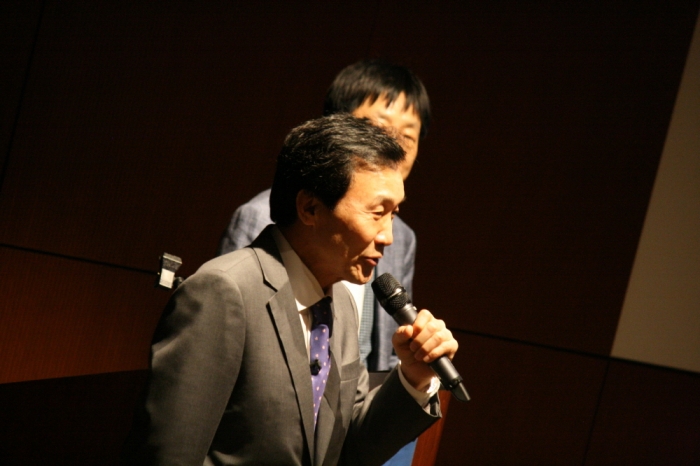
Epilogue
'Unification' has become the major topic in the Korean society from the beginning of the year. It was triggered by the popular and sensational wording by President Park Geun Hye, which is, 'Unification is Jack Pot." But that is not all. The conservative Chosun Ilbo has also launched a grand campaign for Unification as their major yearly project.
These campaigns do not seem to come out as coincidence. The circumstances and conditions were there. The instability of North Korea caused by, or found out by, the execution of Jang Song-Taek, Kim Jong-Un's Uncle, was the major motivation of these movements. This situation encourages the people, especially the conservative people, to anticipate the possibility of a 'sudden change' or, bluntly put, the 'sudden collapse' of the North Korean Regime.
Unification certainly is jack pot. Unification will bring tremendous economic benefits both to North and South, and indeed, to the Unified Korea and surrounding countries. A sudden collapse may come about. The instability and the weakness of the North Korean Regime may bring about the situation.
But, what should we do to meet the situation of sudden collapse of the North, if it really happens? Strengthen military capability? Expand police capability to handle the social disorder? Expand budgets to accomodate refugees? Prepare legal devices to deal with the property disputes?
Fine. They are necessary as contingency plans for the extraordinary and emergency situation. However, what we really need to prepare is the peaceful transition of power. We need to build up the economic community in the Korean peninsula. We need economic cooperation with the North for this purpose. We want to see reform and openness of the North Korean society to this end. That is why we want to build up a peace mechanism, and why, for that purpose, we want to open a dialogue.
The sudden change may or may not come about. But what is clear is that we need the wisdom not to repeat the mistakes of the coercive policy of the past administration based upon the assumption of the early collapse of the North Korean Regime.
What we have to do is to induce North Korea into reform and openness. Already there is a trend of the expansion of market economy, though in restricted scale. The rapid increase of mobile phones is another phenomenon. Signs of change in North Korea are obvious.
The reason why the North is aggressive is not that they have the strength but that they want to desperately escape from isolation. The repeated open suggestion by the North for the betterment of the South-North relation is another expression of the situation.
We have to be endurant. We must not hurry. The core task is how to pull North Korea constructively into the security regime of Northeast Asia. We already have a solidly established system of control of North Korea through ROK-US Alliance and ROK-China Strategic Partnership. It is desirable to refrain from the coercive bargaining by the 'peace through strength' strategy. Reassurance of security concerns through friendly persuasion rather than compulsion is important and useful.
In this respect, I would like to advise the Korean government to lift the May 24 Measure as a sign of rapprochement. This is the road to North Korea's reform and openness. I would also like to propose to the US government to actively engage in the dialogue initiative. President Obama may ask President Clinton to visit Pyongyang as a special envoy. His mission may or may not be for the release of Kenneth Bae, whom the North Korea has already shown the intension. The important thing is that the US shows its earnestness to respond to the desire of the North for the improvement of the relations with the US and the South.
The general atmosphere of both the US and South Korea is certainly against the dialogue and lenient policy. The conservative and hard-line position is dominant under the situation where, they think, the collapse of the North Korean regime seems imminent. But, even if their speculation is correct, this is really the appropriate time for the political leadership of both countries to take the peace initiative, for we want a peaceful and stable transition, not disruption and destruction of the prosperity, to be obtained through unification.
Thank you.
